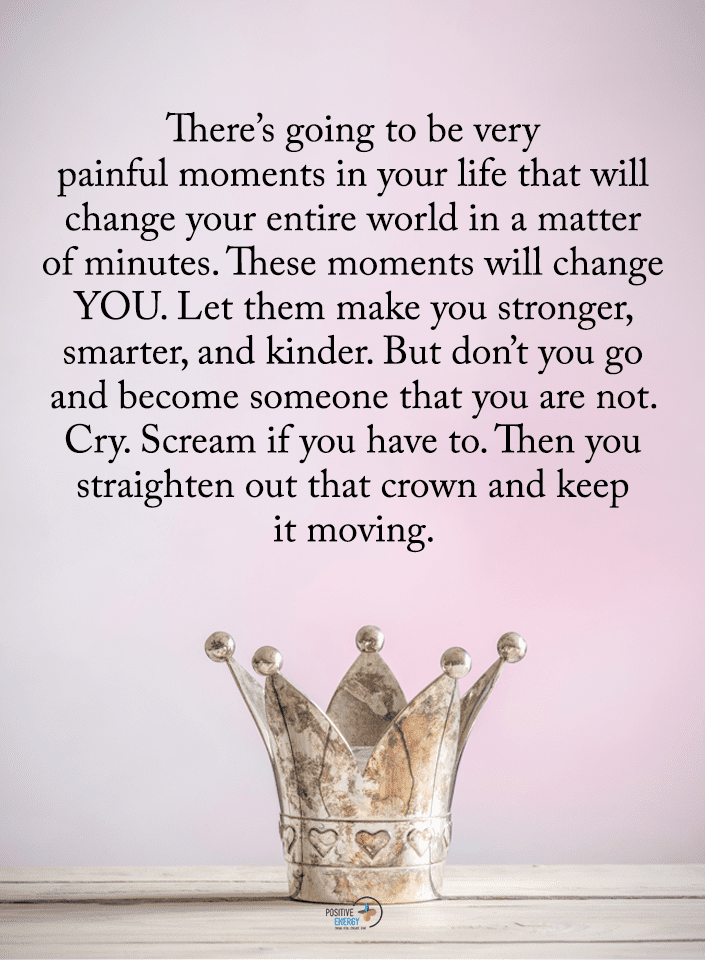Ending a relationship can be heartbreaking for women.
Love, a word as simple as it is complex, touches everyone. If you’re reading this, chances are you’ve experienced the rollercoaster of emotions that come with relationships. You understand that love is not just a feeling but a journey that can be both exhilarating and challenging. However, there comes a time in many women’s lives when the difficult decision to end a relationship arises, even when love is still present.
Why does this happen? Why would someone walk away from a relationship while still in love? The reasons are as varied as the individuals involved. However, they often stem from a deep personal understanding and emotional necessity. It’s a decision that doesn’t come lightly, often weighed down by many factors beyond the simplistic view of love.
NOTE: If you want to learn why men leave relationships, please check out our companion article.
12 Reasons Women End Their Relationships When Still in Love
Here are twelve heartbreaking reasons why women sometimes move on:

1 – Women May End Relationships When They Grow Apart
As you journey through life, your experiences shape you, often in unexpected ways. Personal growth is a beautiful, albeit complex, aspect of being human. This growth can sometimes lead to an unexpected turn—growing apart. It’s not about love diminishing; rather, it’s about how you and your partner evolve. The goals, interests, and values that once aligned perfectly now diverge.
Imagine when you first fell in love: those shared dreams and plans seemed set in stone. However, as time passes, you might discover new passions, or your career might take a turn you didn’t anticipate. The lifestyle you once craved no longer fits the person you’ve become. These changes are natural but can create a gap in your relationship. It’s like two trees growing side by side; over time, their branches might stretch in different directions, not out of choice, but simply due to their nature.
Recognizing and acknowledging this divergence is crucial. It involves deep introspection and honest communication with your partner. Sometimes, these differences can be reconciled, and new common ground can be found. However, there are also times when the gap becomes too wide, and the healthiest decision for both is to part ways, allowing each individual to pursue their unique growth path fully.
2 – Couples May Have a Total Communication Breakdown
Key to any strong relationship is communication. It’s the bridge that connects your world to your partner’s. But what happens when that bridge starts to crumble? Communication breakdown is a common yet profound reason why relationships face challenges. Misunderstandings and frustrations grow when you can’t effectively share your thoughts, feelings, and needs.
Imagine communication as a flowing river between two hearts. If this flow is obstructed, the emotional connection starts to dry up. Maybe you’re not discussing your concerns openly, or when you try to talk, it leads to arguments rather than understanding. Over time, this breakdown can create a feeling of loneliness and isolation, even when you’re together. You might start to feel like you’re living with a stranger who no longer understands the depths of your soul.
Addressing communication issues often requires both partners to make a conscious effort. It’s about actively listening, showing empathy, and expressing oneself clearly and kindly. Professional guidance, like couples therapy, can also be a valuable tool. However, if efforts to revive communication continually fail, the relationship might end despite the love.
3 – Women End Relationships Due to the Lack of Emotional Support
In the tapestry of a relationship, emotional support is one of the threads that keep it strong and vibrant. It’s about more than just being physically present; it’s about being there for each other emotionally through highs and lows. Lack of emotional support can make you feel alone and unvalued, even in a committed relationship.
Emotional support is the comfort you find in knowing your partner is your confidant, cheerleader, and haven. It involves understanding, compassion, and being genuinely interested in each other’s well-being. When this support dwindles, you might feel neglected or taken for granted. The relationship begins to lose its warmth and security, essential for love to thrive.
Addressing this gap requires open discussions about each other’s emotional needs. It’s important to convey how you feel and what you need from your partner. However, suppose you consistently find yourself without the emotional support you crave, and all efforts to address it seem futile. In that case, it may lead you to reconsider the relationship’s viability.
4 – Couples May Develop Trust Issues
Trust is the foundation of every strong relationship. It’s about believing in your bond’s integrity, strength, and loyalty. When trust is broken, it shakes the very core of the relationship. Breaches of trust can take many forms: infidelity, dishonesty, or consistently failing to keep promises. These actions create cracks in the foundation that are difficult to repair.
Rebuilding trust requires time, patience, and consistent effort. It’s about proving through actions, not just words, that you’re committed to regaining what was lost. However, the process can be incredibly challenging. The hurt and betrayal felt can linger long after the incident, casting a shadow of doubt over every interaction. You might question your partner’s actions and motives, leading to a cycle of suspicion and conflict.
In cases where trust cannot be restored, despite genuine efforts, it may lead to the end of the relationship. It’s a difficult and painful decision, especially when love is still part of the equation. However, maintaining a relationship without trust is like holding onto a house whose foundation is crumbling – eventually, you might have to step away for your safety and well-being.
5 – Women May Have Different Life Priorities Than Their Relationship Partners
Different life priorities and plans can significantly impact a relationship’s health. This divergence might pertain to career goals, where to live, whether to have children, or how to spend time together. When these fundamental aspects of your life don’t align with those of your partner, it can create a sense of living parallel but separate lives.
Imagine planning a vacation where one wants to climb mountains while the other dreams of peaceful beaches. Similarly, one might prioritize career advancement requiring mobility and flexibility while the other yearns for stability and community roots. These differences don’t imply a lack of love; rather, they reflect individual paths that are unique and valid in their own right. Navigating this can be challenging, requiring honest conversations and sometimes difficult compromises.
However, there comes a point when compromise might mean sacrificing core aspects of who you are and what you want from life. Many women find themselves making the hard choice to end the relationship at this crossroads. Though painful, this decision comes from a deep understanding of self-worth and the desire for a life that truly resonates with one’s aspirations.
6 – Couples Might Have Physical and Emotional Intimacy Issues
Physical and emotional intimacy are the threads that weave a relationship’s tapestry, creating a deep and fulfilling connection. Physical intimacy is not just about sexual interactions; it’s also about non-sexual touches, gestures, and hugs that foster a sense of closeness. On the other hand, emotional intimacy is about vulnerability, sharing your innermost thoughts and feelings, and truly being seen and understood by your partner.
When either of these forms of intimacy starts to wane, it can leave a void in the relationship. It might manifest as feeling disconnected during physical closeness or lonely even when together. Such issues are often symptoms of deeper underlying problems – perhaps unresolved personal issues, health challenges, or emotional barriers erected over time.
Addressing these intimacy issues requires patience, understanding, and often professional help, like couples therapy or individual counseling. However, if efforts to rekindle intimacy don’t bear fruit, or if one partner is unwilling to engage in the process, it can lead to a gradual disintegration of the relationship. In such cases, despite the presence of love, the absence of intimacy can become a decisive factor in the decision to part ways.
7 – Some Couples End Relationships Due to Unresolved Conflicts
Conflicts, when resolved healthily, can strengthen a relationship. However, when unresolved, they act like a slow poison, eroding the foundations of trust, respect, and love. These conflicts could range from minor disagreements to major arguments, and their unresolved nature can lead to a buildup of resentment and hurt.
Unresolved conflicts can overshadow the positive aspects of your relationship. They create a barrier to effective communication, make it hard to enjoy each other’s company, and can lead to tension and unhappiness.
Tackling these conflicts requires a willingness to listen, compromise, and sometimes agree to disagree. It requires the ability to put the relationship’s health above the need to be right. However, if conflicts remain unresolved despite efforts to address them, they can create an environment where love struggles to survive. In these situations, many women find the strength to walk away, seeking a space to find peace and harmony.
8 – Women May Have Significant Financial Stressors That End Relationships
Financial issues are often cited as one of the leading causes of stress in relationships. When two people come together, their financial habits, beliefs, and goals merge, sometimes leading to significant discord. Differences in spending habits, income levels, debt, or financial goals can create a constant undercurrent of tension. For instance, one partner may be a saver, meticulously planning for the future, while the other might believe in living in the moment and spending more freely. These contrasting approaches can lead to frequent misunderstandings and arguments.
The stress is compounded when external financial pressures, like job loss, unexpected expenses, or economic downturns, come into play. These situations test the couple’s financial resilience and ability to work together to navigate tough times. When disagreements over finances become frequent and unresolved, they can lead to a breakdown in other areas of the relationship.
Addressing financial stress in a relationship requires open and honest communication about money, setting shared goals, and sometimes seeking advice from financial counselors. However, if the financial rifts are too deep and efforts to bridge them fail, the strain can become overwhelming. In these scenarios, some women decide that the best path forward is to step away from the relationship, seeking a situation where financial harmony and understanding align more with their values and needs.
9 – Couples May Face Family and Social Pressure
The influence of family and social circles on a relationship cannot be understated. External pressures, whether from family members, friends, or societal expectations, can significantly impact the dynamics of a relationship. For instance, differences in cultural or religious backgrounds, family expectations regarding marriage or children, or even societal norms about roles within a relationship can create stress and conflict.
These pressures can manifest in various ways. For example, they can lead to subtle comments and unsolicited advice to overt disapproval or interference. Dealing with these external influences requires a united front as a couple, with clear boundaries and mutual support. However, when the pressure becomes too intense, or when one partner consistently yields to external influences over the relationship, it can lead to resentment and isolation.
Navigating these complex dynamics involves open discussions, seeking understanding and compromise, and sometimes family counseling. Yet, if external pressures are so strong that they start dictating the terms of the relationship or if support from the partner is lacking, a woman may reevaluate the relationship. In such cases, deciding to end the relationship is often about preserving one’s well-being and seeking a partnership that can withstand external influences.
10 – Women May Feel a Lack of Appreciation
Feeling appreciated is a fundamental human need, especially in intimate relationships. Appreciation in a relationship is about recognizing and valuing each other’s contributions, qualities, and efforts. It’s about feeling seen, heard, and valued. When appreciation is lacking, it can lead to feelings of being taken for granted, lowering self-esteem and diminishing the sense of partnership in the relationship.
The absence of appreciation can be subtle—neglecting to acknowledge small acts of kindness, failing to recognize sacrifices or efforts, or not being supportive during significant life events. These small omissions can accumulate over time, creating a profound disconnect and dissatisfaction.
To address this issue, it’s essential to communicate your need for appreciation and to practice expressing gratitude towards each other regularly. However, if the efforts to foster appreciation are one-sided or if the lack of acknowledgment continues, it can lead a woman to feel undervalued and unloved. In such situations, despite the presence of love, the lack of appreciation can be a pivotal reason for deciding to end the relationship in search of a partnership where her worth and contributions are fully acknowledged and celebrated.
11 – Couples Might Have Very Different Parenting Styles
When a relationship evolves into parenthood, it introduces a new dimension that can be enriching and challenging. Different parenting styles can become a significant source of conflict. For example, one parent may believe in a more disciplined, structured approach, while the other prefers a lenient, understanding style. These differences can lead to disagreements over everyday decisions, creating confusion and inconsistency for the children.
The key to navigating different parenting styles is finding common ground and presenting a united front. This often involves open discussions, mutual respect’s perspectives, and a willingness to compromise. However, when these differences are stark, and the efforts to bridge them fail, it can lead to ongoing disputes and a tense home environment.
In some cases, the disparity in parenting approaches reflects deeper issues in the relationship, such as differing values or communication breakdowns. When these differences become too profound to reconcile, and if they start affecting the well-being of the children and the family dynamics, it can be a driving factor for a woman to end the relationship.
12 – Couples May Face Substance Abuse or Addictive Behaviors
Substance abuse or addictive behaviors by either partner can place an immense strain on a relationship. The impacts are multifaceted, affecting trust, finances, daily life, and emotional well-being. The partner without the addiction often finds themselves in a caregiver role, dealing with unpredictable behavior, financial strain, and emotional turmoil. The addictive behavior becomes the elephant in the room, overshadowing all else.
Addressing substance abuse requires professional intervention. It also takes a strong commitment from the person with the addiction to seek and maintain treatment. However, the journey is challenging, and relapses can be common. For the non-addicted partner, it involves a delicate balance of support, setting boundaries, and protecting their own mental and emotional health.
When ongoing substance abuse or addictive behaviors continue without improvement or willingness to seek help, it can lead to an untenable situation for the other partner. In these cases, despite the presence of love, the decision to end the relationship often stems from a need for self-preservation and a desire for a stable, healthy living environment.

Final Thoughts of Why Women in Love End Relationships
These issues reflect the multifaceted nature of relationships and explain why women leave relationships while still in love.
Deciding to end a relationship is never easy, especially when love is still involved. A deep sense of loss often accompanies it, but also of courage and self-awareness. It’s about recognizing that sometimes, the bravest thing you can do is to choose a path that leads to personal growth and happiness, even if it means walking away from a loved one.
Remember, if you find yourself in a situation where you’re contemplating ending a relationship despite still being in love, you’re not alone. Many have walked this path before you, and there’s strength and wisdom in their experiences. Prioritize your well-being, seek support from friends, family, or professionals, and trust in your ability to make the right decision.
The post 12 Reasons Women End Relationships (Even if They’re Still in Love) appeared first on Power of Positivity: Positive Thinking & Attitude.




